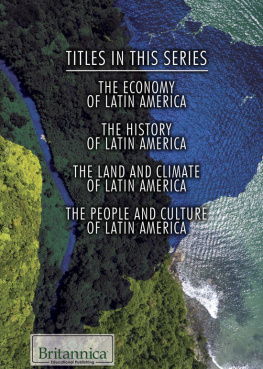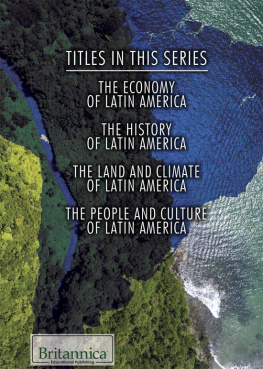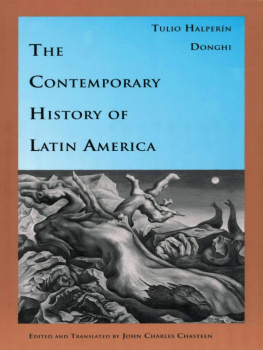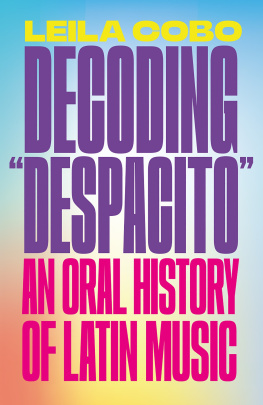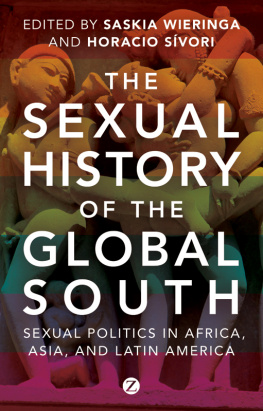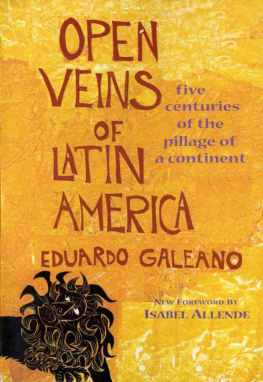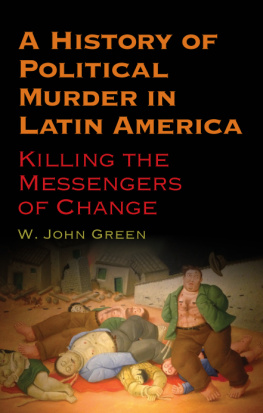Oral History in Latin America
This field guide to oral history in Latin America addresses methodological, ethical, and interpretive issues arising from the regions unique milieu. With careful consideration of the challenges of working in Latin Americaincluding those of language, culture, performance, translation, and political instabilityDavid Carey Jr. provides guidance for those conducting oral history research in the postcolonial world. In regions such as Latin America, where nations that have been subjected to violent colonial and neocolonial forces continue to strive for just and peaceful societies, decolonizing research and analysis is imperative. Carey deploys case studies and examples in ways that will resonate with anyone who is interested in oral history.
David Carey Jr. holds the Doehler Chair in History at Loyola University Maryland. He is the author of Engendering Mayan History: Kaqchikel Women as Agents and Conduits of the Past, 18751970 (Routledge, 2005).
First published 2017
by Routledge
711 Third Avenue, New York, NY 10017
and by Routledge
2 Park Square, Milton Park, Abingdon, Oxon OX14 4RN
Routledge is an imprint of the Taylor & Francis Group, an informa business
2017 Taylor & Francis
The right of David Carey Jr. to be identified as the author of this work has been asserted by him in accordance with sections 77 and 78 of the Copyright, Designs and Patents Act 1988.
All rights reserved. No part of this book may be reprinted or reproduced or utilised in any form or by any electronic, mechanical, or other means, now known or hereafter invented, including photocopying and recording, or in any information storage or retrieval system, without permission in writing from the publishers.
Trademark notice: Product or corporate names may be trademarks or registered trademarks, and are used only for identification and explanation without intent to infringe.
Library of Congress Cataloging-in-Publication Data
A catalog record for this book has been requested
ISBN: 978-0-415-71758-8 (hbk)
ISBN: 978-0-415-71759-5 (pbk)
ISBN: 978-1-315-87125-7 (ebk)
Typeset in Bembo
by Apex CoVantage, LLC
In some ways, I have been working on this book since I conducted my first oral history interview in highland Guatemala in 1995. Perhaps because of its breadth, this project has incurred a great number of debts. Even before the ink on my first book was dry, Walt Little encouraged me to write a book on oral histories in Latin America. Shortly after the publication of my second book, Kim Guinta replanted the seed. While I resisted their encouragement for years, I have been richly rewarded for ultimately embracing it. When the journey took me into unfamiliar territory, generous and gracious scholars almost invariably assisted my research. To any whom I inadvertently fail to mention, I apologize.
Although I have thanked them individually elsewhere for their contributions to previous projects, the Kaqchikel Maya interviewees, research assistants, families, and friends who shared their time, lives, and memories with me during my first forays into oral history continue to inspire and inform my research and scholarship. When motivation for the project ebbed, reflecting upon their energy, joie de vivre , and appreciation for storytelling buoyed me.
As I began to craft the framework, three anonymous reviewers of my book proposal at Routledge helped me to rethink its organization and content. A number of people read earlier versions of the chapters including Bill Taylor, Betsy Schmidt, Allen Wells, Rob Alegre, Renata Keller, Rod Camp, Judie Maxwell, Ben Fallaw, Deborah Estrada, Tom Pegram, Ardis Cameron, Matt Mulcahy, Jeremy Greene, Michael Hillard, Alison Bruey, Steve Stern, Seth Garfield, Rosanna Dent, Lydia Crafts, Dan Castillo, and Chriss Sutherland. Their insights, efforts, and critiques vastly improved the manuscript. Geoffrey Jones promptly responded to my questions about Harvard Universitys Creating Emerging Markets project. In presentations and discussions in their classes, students at Bowdoin College, Colby College, the University of Southern Maine (USM), and Loyola University asked questions and pushed me to clarify points that contributed to the coherence of the book. Criticisms and suggestions from Daphne Patai, Jim Wilkie, and the other (anonymous) reviewer of the manuscript for Routledge helped me to sharpen my arguments, broaden my conceptualizations, and rethink my emphases.
Although moving from USM to Loyola University undoubtedly slowed the progress of this manuscript, both institutions supported my scholarship and nurtured intellectual communities from which I gained knowledge, inspiration, and friendship. Crystal Wilder provided valuable research assistance. First conceived and organized by Brian Norman, Loyola Universitys Writing Retreats afforded me time and support to write and revise the manuscript and facilitated companionship in what is an otherwise solitary exercise. Among the many other wonderful Loyola colleagues who contributed to the project, Nick Triggs tracked down obscure sources, Patrick Brugh drafted the map, Ashley Buzzanca scanned a number of the images, and Rachael Martines prepared the bibliography.
In what I fear is a testament to either my tortuously slow pace or taxing personality (or both), I burned through three editors at Routledge before the book came to light. With their sage advice, Mary Dougherty and Bill Taylor helped me to make sense of these transitions and their implications. As the manuscript neared completion, assistant editor Dan Finaldi adeptly guided it through production. From afar, Eve Setch oversaw the process with aplomb.
Anita Jemio facilitated permission to reproduce the flyer from her research in Chapter 1. Parts of Chapter 4 appeared in Words and Silences: The Journal of the International Oral History Association . Excerpts from the Introduction and chapters five and six appeared in the Oral History Australia Journal . I appreciate the editors permission to reproduce them here. Stephanie Moore and Grace Shimizu, the director of the Japanese Peruvian Oral History Project, pointed me to the photographs of Japanese Peruvians.
I especially want to thank my daughters, Ava and Kate (ages ten and seven as this volume was going to press). As some of the accounts in this book made it into our bedtime rituals, their unquenchable thirst for stories compelled my search for oral histories that both entertained and informed. With reactions that ranged from laughter to yawns, they were the toughest critics of this manuscript.
As my mother struggled with memory loss, this project took on a new sense of urgency and meaning. She could no longer recall our time together in Mexico, Chile, Guatemala, or Belize. Already indelibly informed by highland Mayas resilience in the face of poverty, racism, violence, and genocide, my appreciation for the power of storytelling and nostalgia took a more personal turn as I noticed that some of the exchanges that most animated Mom were sharing stories from her childhood. With love, compassion, and commitment that was nothing short of heroic, my father was quick to stimulate such memories and create new ones despite their increasingly ephemeral nature in her mind. Highlighting our shared experiences and our individuality, stories have been a lifeline in our family.


